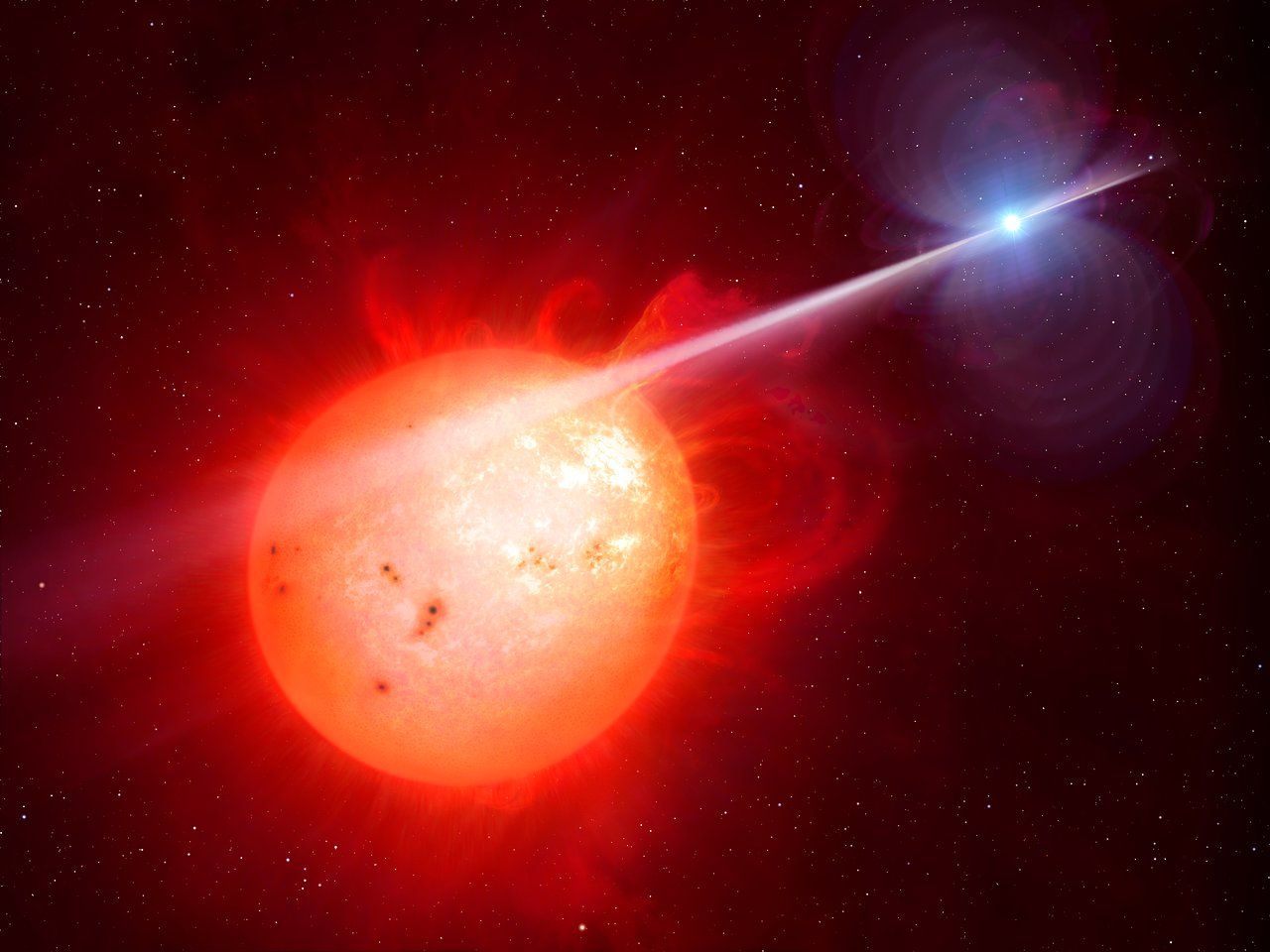Image credit: M. Garlick/University of Warwick/ESO - http://www.eso.org/public/images/eso1627a/
Building a World
Perhaps foolishly, I like to begin the worldbuilding process by zooming out to planetary scale. Something about space and all of its strange phenomena has always drawn me in and fueled my imagination. Neutron stars, black holes, supernovae, rogue planets. These quirks of our universe are ripe for storytelling, and indeed many science fiction authors have seized the opportunity. However, I'm fascinated by the idea of placing fantasy stories on planets where the solar system plays an important role.
Last year I read Mark Lawrence's Book of the Ancestor series and loved his inclusion of a moon that cut a swath of habitable land through a frozen-over planet. Without spoiling anything, the moon had important ramifications for the story and characters; it wasn't just window dressing. More than that, it gave the world a real sense of history; it made the setting feel post-apocalyptic, a world where knowledge of the past was nearly lost forever, only preserved in stories and culture. It was fantastic. My only complaint was that he didn't take it even further. (But hey, maybe he's saving some for later. The series is still being written, after all.) In any case, I think that particular choice of setting really added a lot to the story. Why don't more fantasy authors include elements like that in their stories?
I can think of several potential reasons. Perhaps it is and I'm just not well-read enough to have encountered those books. That seems highly likely. Maybe fantasy authors and audiences prefer a demarcation between fantasy and sci-fi, and black holes and supernovae fall on the science fiction side of the divide. I can grok that. I can also think of a purely practical reason these devices aren't included in many fantasy stories:
Because it's really hard to do well.
The series title for the novels I'm working on is Dance of the Sibling Suns. From this title, you might have gathered that this story takes place on a planet that has multiple suns. The culture to which my protagonist belongs refers to their two suns as the Siblings – the Brightdaughter and the Shadowson. What kind of effect did that have on the story? Bear with me for a moment, because this is about to get somewhat technical. I'll do my best to keep it brief.
A Semi-Technical Infodump
The planet that serves as the setting for my story takes place in a binary star system. Planets in binary star systems are not that unusual; we've even got orbital classifications for them.

S-type orbits go around one sun; similar to Earth, but sometimes you'd see a really bright star in the sky. P-type orbits go around both suns; think Tattooine, and the famous binary sunset scene.
I didn't want to use either of these orbital types for my planet; instead, I placed my planet at the stars' barycenter, their shared center of mass. In this picture, imagine that there's a planet where the plus sign is drawn. Imagine as well that the north pole of the planet is attracted to the big star (the Brightdaughter) so that the northern hemisphere always faces it. The planet wobbles some, but generally the north always faces the Brightdaughter and the south always faces the Shadowson.
On such a world, sunrise and sunset are not uniform, neither in time nor in space. They depend on how much the planet has wobbled on any particular day. The Brightdaughter may one day rise in the northeast and set in the southwest. One day it will rise in the southeast and set in the southwest. Or maybe it will be a "normal" day with the sun rising in the east and setting in the west. (Of course, the people living on this planet would have no conception that that's "normal.") Depending on how far across the sky the sun travels, the day will be longer or shorter. So how do you keep track of time? Hours were originally just subdivisions of a day, but if that length of time is inconsistent, does an "hour" even exist? How about minutes, seconds, months, or years? Clearly, an orbital system has a significant effect on the societies living on the planet.
Can such a world exist in the universe? I have no idea. I'd like to try and recreate the system in something like Space Engine to see if it would work. I suspect that if it were possible, there'd be a third type of orbital classification on that Wikipedia page. But this is fantasy, after all; not everything has to be possible. It's how this influences the story that really matters. Therein lies the crux of this issue.
Flattening the (Learning) Curve
My protagonist is a simple bounty hunter. He doesn't have any conception of what a "barycenter" is, or how the planet wobbles while trapped in the gravitational well of two solar bodies. You can't link to Wikipedia in the middle of a novel. Even with that resource I fear I've failed to explain it clearly enough for you to understand the implications for the story. So how do you get this info across to the reader?
Well, for the most part... you don't.
Not if you want them to keep reading, anyway. The only thing you can really convey is how these planetary quirks affect the characters. They're the ones whose eyes you're seeing through. They're the ones living on this planet, not you. They're the ones who decide what a "normal" day is like. But if their idea of "normal" is completely different from our own – especially with fundamental things like timekeeping and a sun that moves predictably – then readers are going to have a hard time putting themselves in the character's shoes. The learning curve is just too high.
There are techniques you can use to flatten the learning curve. Trickle out the information slowly, only doling out as much as is needed. Use a character from outside the culture as a stand-in for the reader. Perhaps the best advice is to just simplify where possible; maybe instead of coming up with a new word for "year", just use "year" because even if there's no such thing as a year in your world, it's close enough.
But all of those techniques only go so far. At base, the more alien your world becomes, the steeper your learning curve will be. And you will lose readers because of this. Some subset of the audience simply won't find it worthwhile. Can you blame them? Time is valuable. The steeper your learning curve is, the better your characters and story have to be for them to stick it out.
Perhaps that's the tradeoff, and why people don't try to incorporate such things into fantasy books. In a fantasy story where you already need to explain magic systems, different cultures and religions, cryptozoology, non-human races, and more on top of basic requirements such as having good character motivations and a comprehensible plot... do you really want to throw orbital mechanics into the mix?
Apparently, my answer was "yes, I do."
I did say in the beginning that perhaps it was a foolish endeavor. It's really hard to do something like this well, and as I've already established, I don't know what I'm doing. But if it's hard, that's no excuse; everything about writing a book is hard.
That's what makes it so fun.

